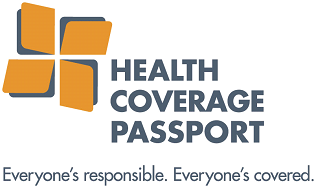Patient Protection & Affordable Care Act
In March 2010, the Patient Protection and Affordable Care Act (ACA) was passed and signed into law. FAH strongly supports the ACA, which provides millions of Americans access to affordable health care insurance through federal and state health care Marketplaces, as well as through the expansion of existing Medicaid programs.
The ACA implemented numerous health insurance reforms, such as:
- Prohibiting pre-existing condition exclusions
- Requiring guaranteed issue and renewability
- Modified community rating
The Marketplaces and insurance market reforms are intended to provide a greater number of Americans with health insurance coverage that allows them to access hospital and other provider services.
Further, the ACA provides Medicaid section 1115 demonstration authority and 1332 individual and small-group market authority that provides states with the opportunity to make state-specific adjustments to Medicaid and a state’s individual and small group insurance market.
Strengthening the ACA
Substantial progress has been made over the past decade in expanding access to health coverage through the ACA, which vastly increased the number of children and adults with lower incomes who are covered. Yet, there are obstacles to the ACA’s vision of ensuring those millions of Americans who remain uninsured in this country. For example, there have been ongoing legal challenges to the ACA. Currently, a decision by the United States Supreme Court is expected in 2021 regarding the continued constitutionality of the ACA’s individual mandate (in light of Congress “zeroing” out the individual mandate penalty) and whether the rest of the ACA can be severed if the mandate is unconstitutional. In addition, certain policies act as barriers to the availability and affordability of coverage.
Robust efforts to expand ACA coverage are critical, including efforts to connect individuals to available assistance programs that can address gaps in coverage and affordability. We support the following ACA improvements:
- Adequate Enrollment Period: Ensure adequate enrollment, including special enrollment, periods, with substantial funding for outreach and education.
- Tax Credits and Cost-Sharing Reductions: Increase, and expand eligibility for, premium tax credits and cost-sharing reductions to increase affordability.
- Section 1115 and 1332 Waivers: Eliminate Section 1115 and 1332 state waivers and any related guidance that could cause a decline in coverage or affordability (such as Medicaid work requirements) and use these authorities to promote greater coverage and affordability.
- Healthcare.gov: Ensure access to Healthcare.gov and strengthen standards for web brokers and brokers selling marketplace plans.
- Non-ACA Plans: Eliminate access to non-ACA compliant plans, such as association health plans and short-term health insurance plans, and limit opportunities for renewal of these short-term plans.
- Essential Health Benefits: Revise current regulations that provide insurers with the flexibility to substitute benefits across essential health benefit categories.
- Family Glitch: Eliminate the requirement that a family’s premium subsidy eligibility depends on whether available employer-sponsored insurance is affordable for the employee only, even if it is not actually affordable for the whole family.
- Automatic and Facilitated Enrollment: Engage in robust automatic enrollment efforts as well as facilitated and simplified enrollment for any remaining uninsured individuals.
Additionally, the ACA raises a number of challenges affecting hospitals and consumers, related to both health insurance reforms and operation of the Marketplaces. We support ensuring:
- Coverage of hospital services for patients
- Adequate health plan networks that provide consumers with meaningful access to providers, including essential community providers
- Robust competition in the Marketplaces to provide consumers with a variety of health insurance plan offerings
- That health plans meet the ACA statutory medical loss ratio requirements
It is critical that the ACA is interpreted and implemented by the administration, Congress and courts in a manner that reflects the law’s intent — to promote access to health insurance coverage for millions of Americans to the broadest extent possible. Leading up to enactment of the ACA, FAH was a constant voice for covering the under- and un-insured. In fact, in March 2008, FAH developed “Health Coverage Passport,” a plan to make it possible for all Americans to get the coverage they need.

FAH continues its efforts to advance health coverage for all and believes the ACA is the best building block for new reforms. Since enactment of the ACA, we have strongly advocated for our members on ACA implementation issues, and to ensure that health insurance coverage is achieved on a broad scale consistent with the key priorities of tax-paying hospitals.
